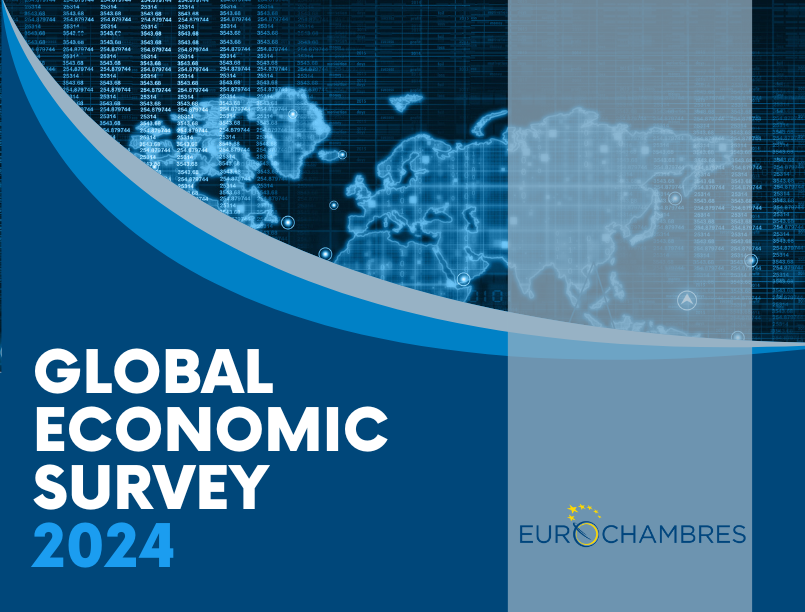Global Economic Survey 2024 (GES2024) – Report
In 2024, the global economy faces heightened challenges due to ongoing geopolitical tensions, exacerbated by the long-term impacts of the pandemic, the on-going conflict in Ukraine, and in the Middle East. According to the GES2024 geo-economic fragmentation poses a significant risk, making geopolitical uncertainty and instability the foremost challenge for the global economy in 2024. Supply chain disruptions, raw material shortages and energy security rank as the second and third most important challenges, respectively. GES2024 participants advocate for public policies that focus on diversifying raw material supply chains and promoting investments in renewable energy and green technologies to address these concerns.
Despite the challenging economic landscape, signs of resilience and recovery emerge in various regions, though growth trajectories remain uneven. GES2024 participants from developed economies such as Eurochambres or the British Chambers of Commerce express a more cautious growth outlook, while those from emerging economies display more optimism. In this sense, China and Türkiye forecast stable or upward growth, surpassing IMF estimates, while the Gulf Cooperation Council Chambers demonstrate strong optimism. Additionally, participants express optimism about business confidence rising in the year ahead and also anticipate positive trends in foreign direct investment (FDI) for 2024 for some regions, including the US, China . Geopolitical uncertainty, supply chain challenges, and the risk of regulatory fragmentation are identified as significant threats to global trade, with participants emphasizing digital trade, dispute settlement, and an ambitious SME agenda as key priorities for the upcoming 13th WTO Ministerial Conference. For the current Brazilian G20 Presidency, GES2024 participants prioritise global approaches to trade and climate, pointing to issues like carbon border adjustments and the facilitated flow of green goods and services remaining high on the agenda for global Leaders. Furthermore, investing in digital infrastructure and establishing harmonized legislative frameworks are deemed essential tools to foster SME digitalization, crucial for strengthening global business resilience.
